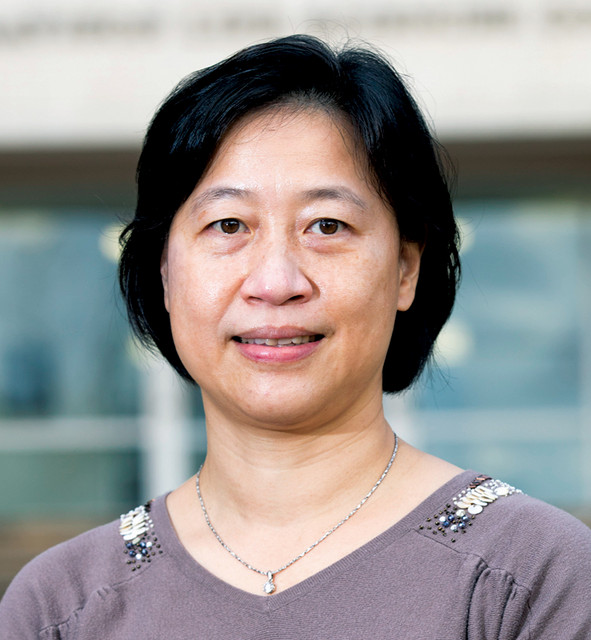Chung-Jui (C.J.) Tsai, Ph.D.
Forest Biotechnology
The University of Georgia
Recruited: 2008
C.J. Tsai imagines a day when trees are a prime source of biofuel. To make that day a reality, she’s working to design better, hardier trees with higher biomass yields.
Tsai focuses her work on poplar trees. She explores how proteins in the cells of these trees affect their growth and cell structure. Using both computational bioinformatics and traditional experiments, Tsai studies how one of these proteins, tubulin, directs the development of cell walls, and how sucrose "transporter" proteins control the flow of carbohydrate nutrients to the wood.
Armed with this knowledge – and using modern genomic tools – Tsai aims to map out ways to accelerate tree growth, make trees more drought resistant and spur them to produce more cellulose, the organic compound that creates biomass, which is translated into biofuel. She believes she can design trees that also are easier to convert directly to biofuel.
Trees engineered for greater biofuel yield and drought resistance could provide a better energy alternative for the future. Using trees for biomass would reduce dependence on food crops such as corn as a source of ethanol – and thus help stabilize crop prices for food and animal feed.
Research
- Cytoskeletal regulation of cell wall development and stomatal behavior.
- The importance of sucrose transporters for long-distance transport of carbohydrate into wood-forming tissues, a major carbon sink in long-lived trees.
- The importance of salicylic acid in stress tolerance of crops and trees.
- Evolution of the phylloquinone (Vitamin K1) pathways in food and non-food plants.
- Phenylpropanoid carbon allocation, and the regulation of competing branchways for biosynthesis of lignin, phenolic glycosides (PGs), flavonoid-derived condensed tannins (CTs) and other phenolic derivatives. CTs and PGs play important roles in defense and stress management among Salicaceae (e.g., poplars and willows), and together with lignin, represent a large carbon sink that can account for more than 50 percent of leaf biomass in these species. Their potential effects on tree growth, fitness, and wood quality, and their documented impacts on ecosystem dynamics are the driving force behind this line of research into the molecular regulation of phenylpropanoid metabolism.
- Characterization of wood cell or fiber-specific promoters for utility in genetic engineering of fiber properties.
- Alternative splicing as a critical factor in shaping the transcriptome of woody species.
Choosing Georgia
Tsai was attracted to the opportunities for interdisciplinary collaboration at the University of Georgia, which were bolstered by her dual appointment to the faculty of both the Warnell School of Forestry and Natural Resources and the Department of Genetics in the Franklin College of Arts and Sciences.
Intellectual Property
5

